Sourced locally, made sustainably
Moving towards a more sustainable position for the business is a key goal for our company.
This responsible attitude has seen us invest in and grow our capabilities as a GB manufacturer. It gives ourselves greater control over all production processes and have a we have a firmer grasp on the carbon footprint of the products we make and sell.
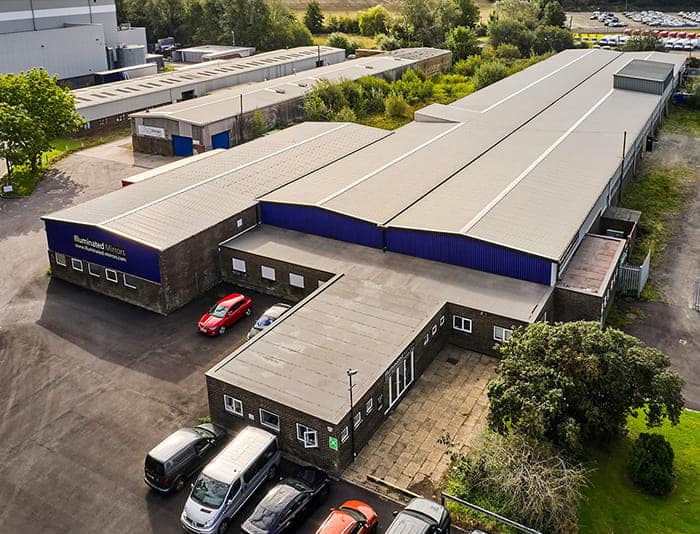
Our mission:
We appreciate that there is a balance to be made between the profits we make as a company and the lasting impact that we leave on both the wellbeing of our planet and people, and are therefore committed to lessen our impact on the environment and find a better, more sustainable path forward.
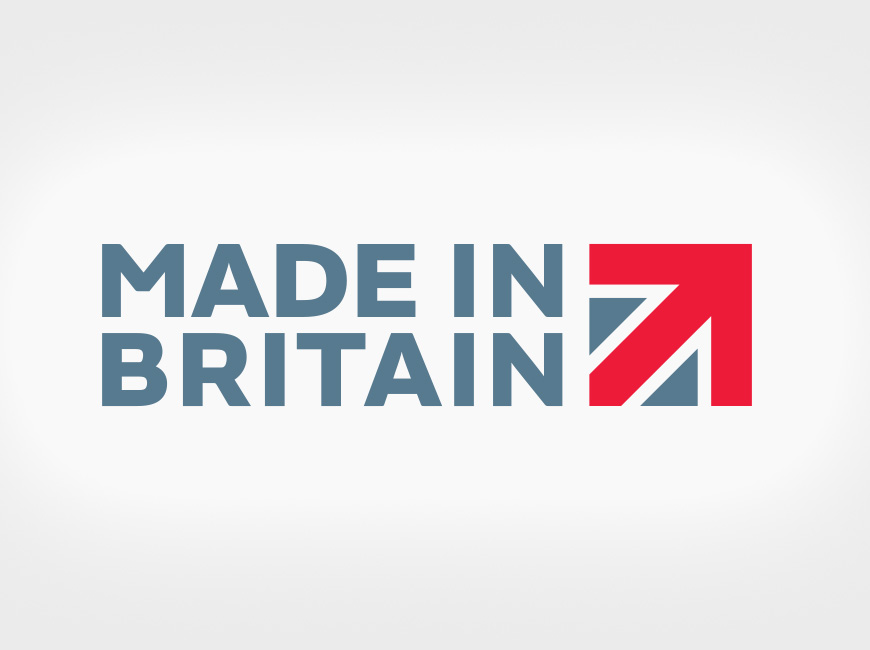
Illuminated mirrors and Made in Britain.
For 5 years, we have been proud members of the Made in Britain movement and have been accredited with the Made in Britain seal which can be found on many of the products in our range.
We developed a localised supply chain and built a team that has the skills and capabilities to design, build and package the products on-site. This gives us complete control over product quality, life cycle and the production process.
We use packaging materials that are recyclable, and indeed, redesigned our packaging from the ground-up to ensure that we minimised those materials that historically end up in landfill.
We worked with a local supplier to create packaging for our mirrors that is (for some of our products) 100% recycled cardboard, whilst other products have a small amount of recycled (65%) foam.
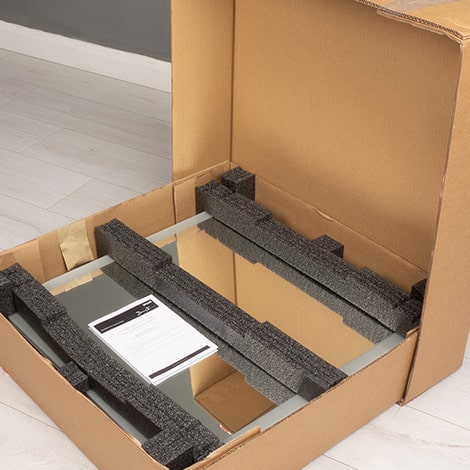
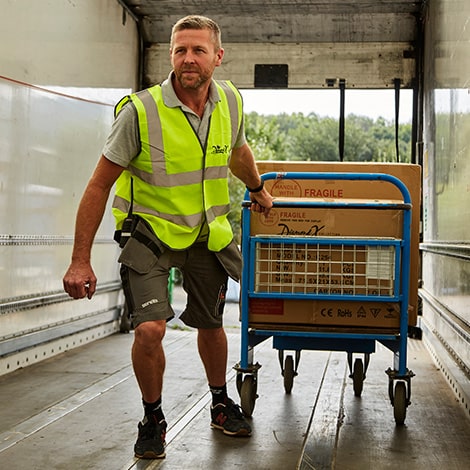
With the onset of a global pandemic and the impact that this then had on many retailers in the UK, we set up local supply chains for everything from aluminium, glass, and mirror, to LED drivers and associated components. We have gone from a company that employed 7-10 UK staff members to employing over 30, mainly local people, of all ages to service our ever-growing client base. We are immensely proud of this.
In doing so, we have now arrived at a position where all our mirrors and cabinets are now produced right here in the UK (Westbury Wiltshire, to be exact!), using parts that are largely sourced through a localised supply chain that has shifted to being UK-centric.
But what does this mean for the environment?
Goods that are produced in the UK have helped to drive a decline in UK carbon emissions over the last few years. In fact, the UK is currently halfway to meeting its target of net zero emissions by 2050 (https://www.carbonbrief.org/analysis-uk-is-now-halfway-to-meeting-its-net-zero-emissions-target).
The UK now gets about 39 per cent of its electricity from renewable power, and factories in the UK using the greener power have benefited from this in terms of their carbon footprint.
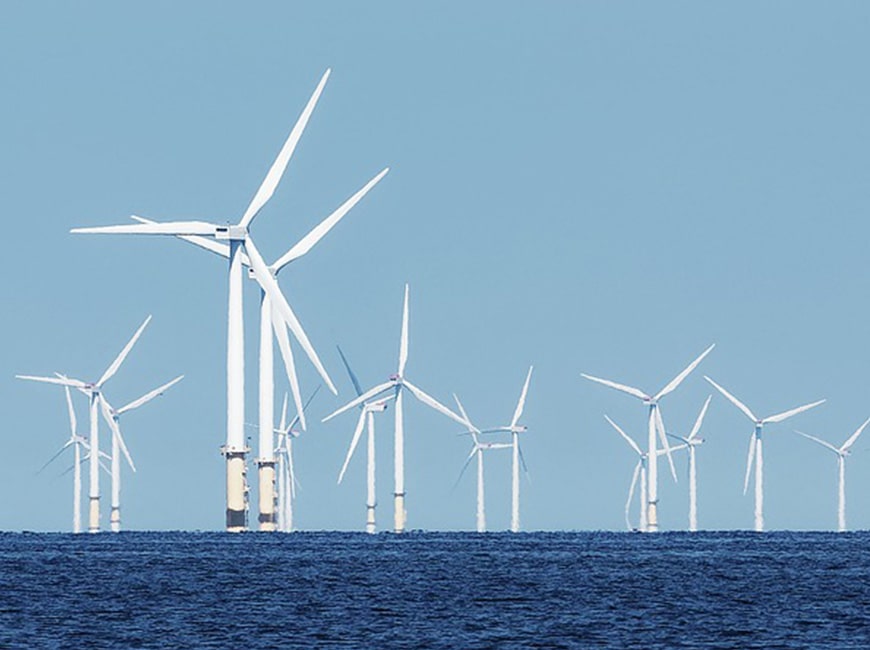
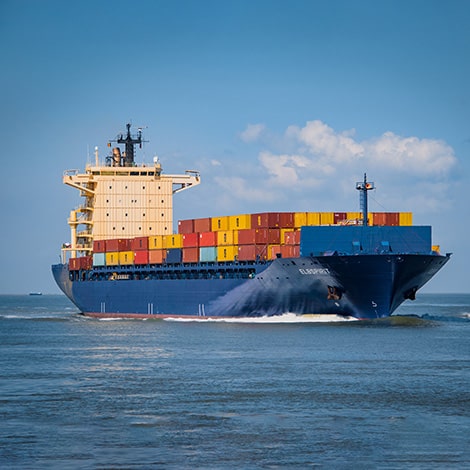
Carbon emissions associated with UK products are 31% lower than when records began in 1997. However, emissions associated with goods that are imported have risen during the same period. Therefore, in terms of carbon emissions and the carbon footprint of any product sold in the United Kingdom, goods that are imported – particularly from China – have an inherent larger impact on emissions.
Emissions associated with goods imported from China have risen by a massive 260% since 1997, and now account for 17% of all imported emissions into the UK. By comparison, imports from the United States account for 9% of imported emissions. Therefore, by helping to reduce the number of products and components that we import from China, and from the continent, we are able to say with confidence that we are reducing the carbon footprint of our illuminated mirrors and cabinets.
Reducing our carbon footprint
Chinese goods account for such a large slice of the imported emissions pie for two reasons. Firstly, China produces a huge number of products/goods and supplies much of the world’s economies. This fact became incredibly prevalent with the onset of the Covid Pandemic and the shutdown of large swathes of Chinese production. Secondly, China gets more than half its electricity from coal, the most polluting fossil fuel.
That alone makes the carbon cost of manufacturing in China considerably higher than in other countries, many of which begun transitioning to using more renewable power many years ago.
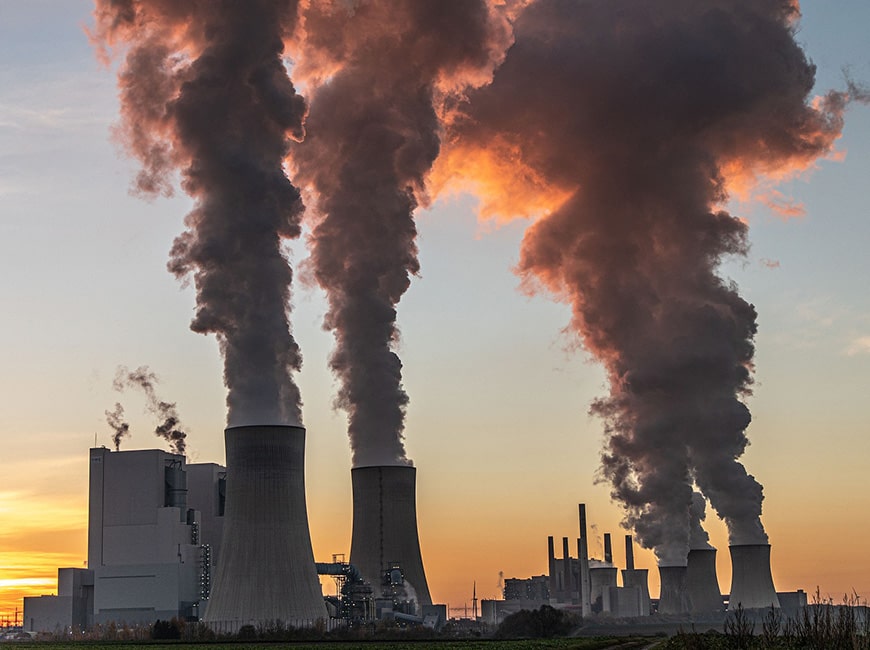
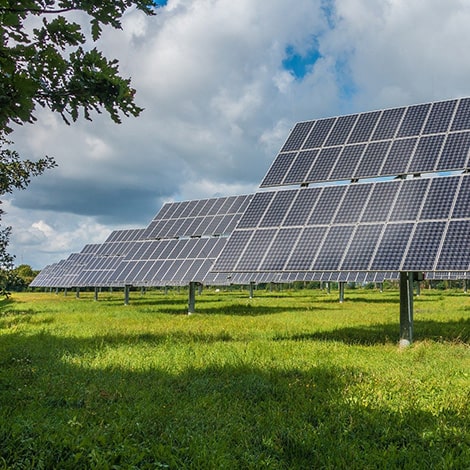
For example, figures from the UK government have shown that the growth of both wind and solar farms across the UK have not only helped the energy sector decarbonise but have also had a dramatic impact on the carbon footprint of goods that are produced here in the UK.
China is quickly ramping up the amount of renewable energy it has on its electricity grid to try and offset its impact on emissions but in truth, is many years away from achieving the kind of renewable power grid that we in the UK have right now.
So, if you want a greener product, opting for goods that use the ‘Made in Britain’ accreditation are a great place to start.
Refurbish and repurpose
As part of our commitment to reducing wastage, we now have a dedicated team that work with our returned and faulty/damaged in transit products to recycle, reuse and refurbish.
We strip out all components, test and reuse where possible in our production process. Obviously, there are some elements that cannot be reused, in which case we then recycle appropriately.
We also refurbish those items which have very minor cosmetic issues and sell them for a reduced price online. This means that we are both reduce product and component wastage as well as offering some exceptional bargains to our customers. We will never bin items that can be very easily repaired.
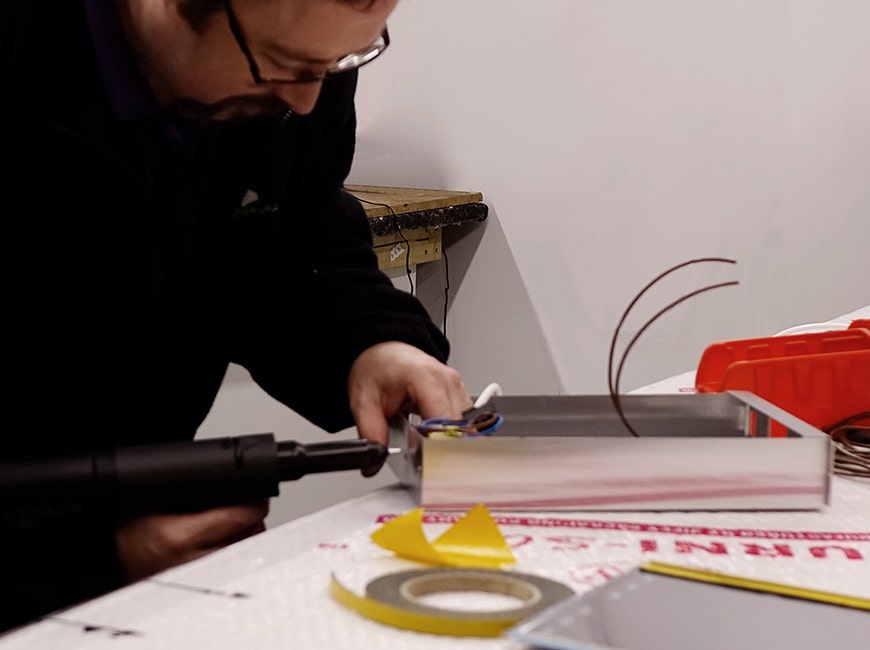
Future commitments and sustainability roadmap
Q1-Q2
Supporting grassroots environmental organisations
We are in support of NGOs that are working to make our world a better place, either through raising awareness of the environmental issues that we face or through grassroots action to reduce the environmental impact. This includes both animal and environmental conversation groups. We aim to do more to support and increase awareness of the good work being done.
Q3
Packaging 3.0
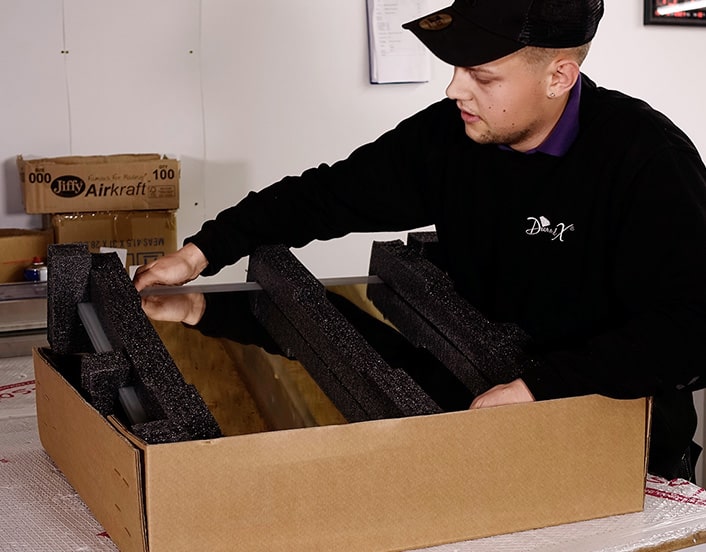
Updating our packaging was a first step in the right direction, but there is still room for improvement and to push this further. Sustainability is an on-going process, and our next goal is to remove and replace any non-degradable plastics and foam inserts from our mirror packaging – while maintaining the safety of the product being delivered. Foam inserts are used to cushion and protect your mirror when in transit. However, we are working on a cardboard solution that can replace the foam completely.
Q4
Recycling programs – don’t put in in your bin, put it in ours
We have the capabilities to strip down your old mirror and recycle the elements correctly – glass, mirror, metals, wood, etc.
For a fee of £20 (this covers the collection service cost) , we will pick up your old mirror /cabinet and recycle the elements to ensure it doesn’t end up in a landfill site if recycling is difficult for you to do. Doing this yourself is less carbon wastage but we are set up for recycling all the components that we use to build your products. Please email our support for more info on this upcoming service.


